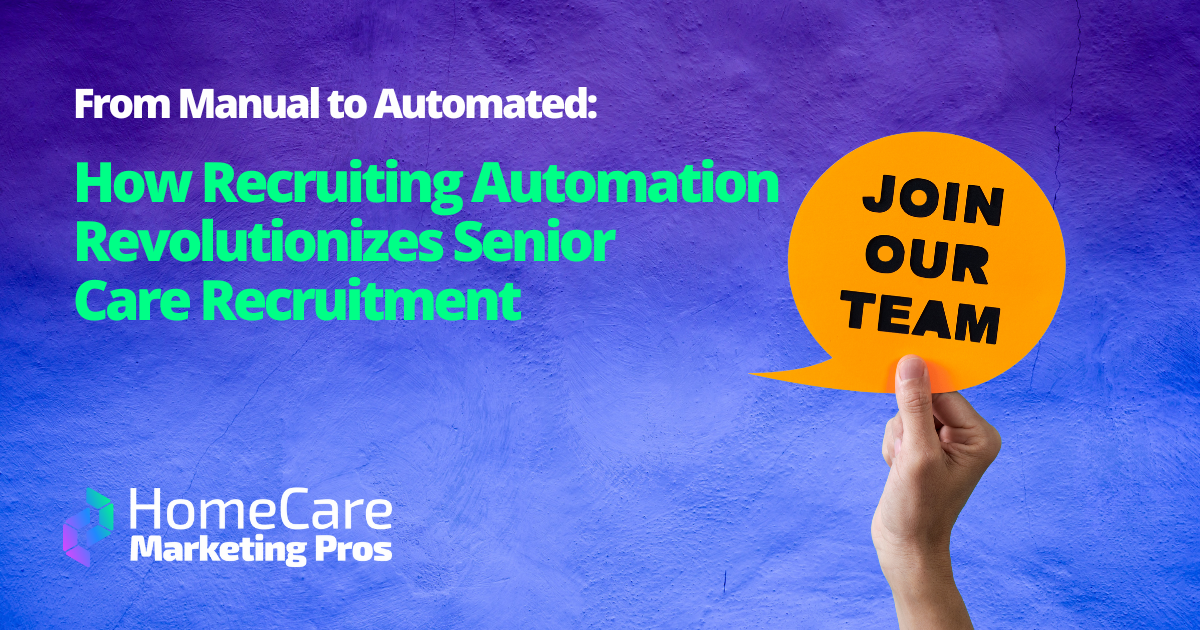Retaining New Caregivers Through the First 90 Days
Hold onto your new caregivers during the most crucial part of the employee journey

The first 90 days of a new caregiver’s tenure at your agency are some of the most important. According to Home Care Pulse, 57% of caregiver turnover happens in the first three months.
Retaining caregivers begins in the recruiting process and continues through the moment they walk out the door. To bring them up to speed and set up new caregivers for success, the employee experience in the first 90 days requires a careful amount of detail, attention, and mentorship.
9 ways to retain caregivers through the first 90 days
1. Design a rigorous recruiting process
This is where an effective caregiver retention strategy begins. You may be losing caregivers because your hiring process doesn’t produce the best candidates. As you design your recruiting process, consider:
- Are role responsibilities and expectations clear? Do the job title and description reflect this?
- Have you agreed on and documented ideal candidate criteria?
- Have leaders and hiring managers agreed on relevant and appropriate questions for prospective caregivers?
- Do interviewees understand how they are being scored and evaluated?
- Are all parties involved in the hiring process properly and consistently trained to identify the right caregivers?
- Are your interviewer panels diverse?
- Are people managers trained on things like mentorship, performance evaluation, unconscious bias, and DEI?
2. Design an accurate interview process
Retain caregivers by giving candidates an accurate picture of the job and of your home care agency. According to Jobvite, as much as 43% of employees say their new job isn’t what they had been led to believe it would be during the hiring process—don’t lose experienced caregivers because you failed to communicate.
3. Set realistic expectations for new hires
Are you asking new employees to achieve too much in their first three months? Retaining caregivers can depend on setting realistic expectations for their performance and contributions.
4. Train them well
To reduce caregiver turnover, equip them to succeed in their roles. Train them on agency-specific topics, like client care expectations and procedures, information management tools, and patient communication. Also give new employees the opportunity to train for their career development, like new licensures and care modalities.
5. Work with them to set goals
Empower caregivers by giving them something to work toward by documenting clear milestones across their first 30, 60, and 90 days. Once you wrap up the first three months, set goals further into the future.
Some goals may be predetermined by your agency, like taking on a certain number of new clients or completing specific training courses. Others should be set by the caregiver themself, like improving patient communication skills or designing new patient care plans.
6. Give new caregivers a mentor
Assign new caregivers a mentor within the company, someone they can approach with questions big and small. This mentor or buddy should be someone who is not their boss or superior so new hires can feel comfortable asking questions they may consider silly or embarrassing.
7. Re-onboard new caregivers
Think of how much information new hires are handed in their first couple of weeks. They won’t be able to retain it all, so offer reorientation check-ins to help the information stick.
- Ask new caregivers how they’re doing to improve caregiver satisfaction: Is the role what they thought it would be? Are they getting clear feedback from their manager? Do they know what their current goals are? Do they see clear avenues for career advancement?
- Remind them of the benefits available: For example, FSAs and HSAs, mental healthcare access, ongoing skills training, mentorship programs, transportation assistance, gym memberships—you name it. Remind them of what they can access and show them how to do it.
8. Give them an easy way to escalate problems
Your new hires may encounter problems they don’t feel comfortable bringing to the attention of their manager. Give them a way to privately and confidentially raise issues to someone in the organization, like an HR manager or people operations leader.
9. Ask for feedback
As you check in with your new caregivers over the first 90 days, ask for their feedback. Questions like:
- What’s working and what’s not working?
- How could the agency make this time better?
- Do they feel like they have the right skills and knowledge?
- Is their manager providing the support they need? Are colleagues welcoming and helpful?
- Do they feel physically and psychologically safe in their jobs?
- How do they feel about their client caregiver relationships?
- Do they understand their patient needs and goals?
For those who do leave, ask them why
Despite your best efforts, some employees will still leave in their first 90 days. This is true of every business in every industry. As your employees elect to go, conduct a friendly non-confrontational exit interview to ask about the reasons and circumstances of their departure. Who knows, you may be able to get them to stay.
Need help recruiting and retaining caregivers?
Recruiting and retaining caregivers is easier said than done, but you don't have to do it alone. Reach out to us at Home Care Marketing Pros to see how our digital marketing solutions can help you and your agency!













